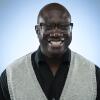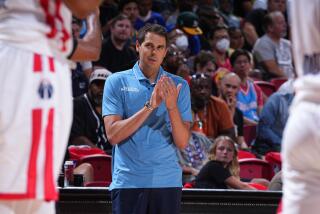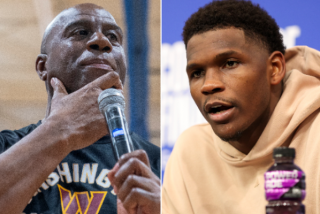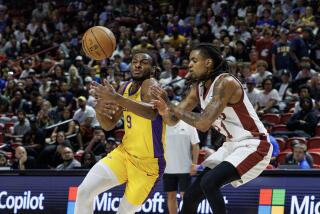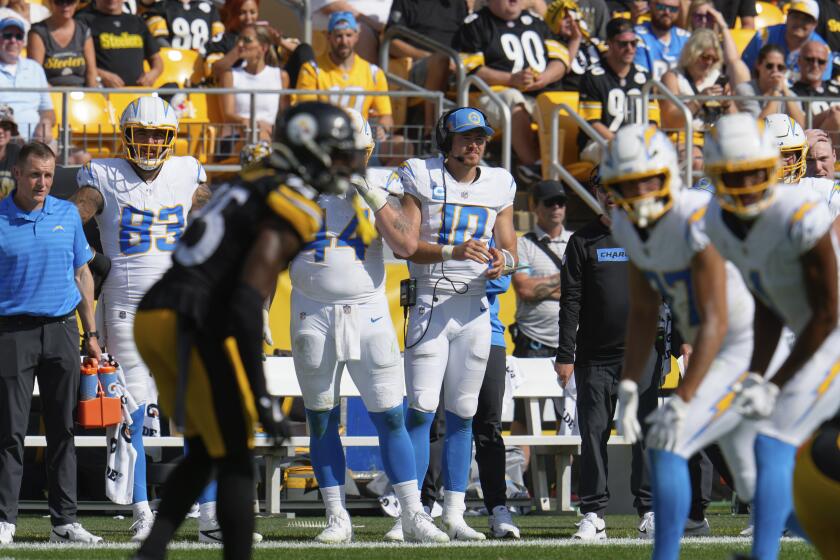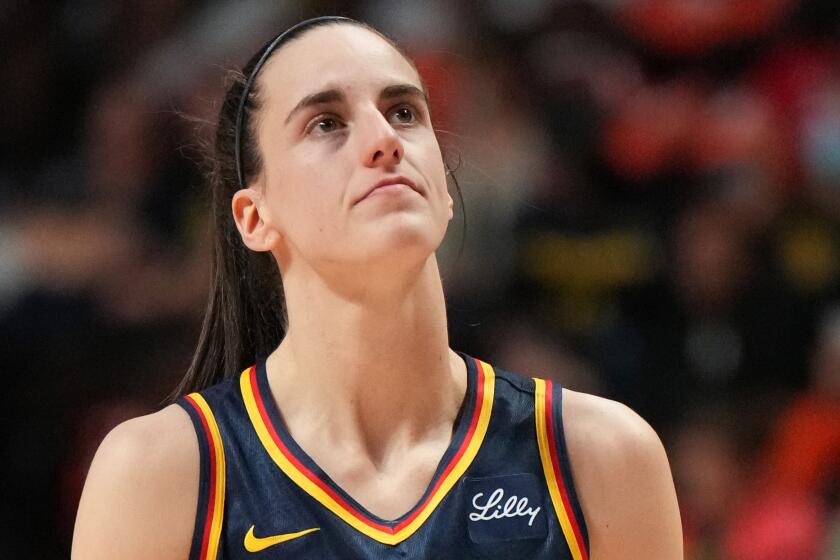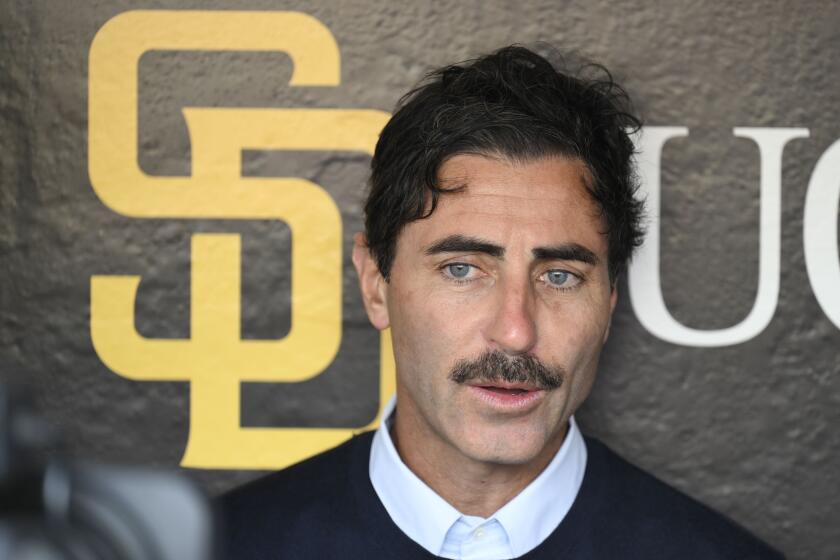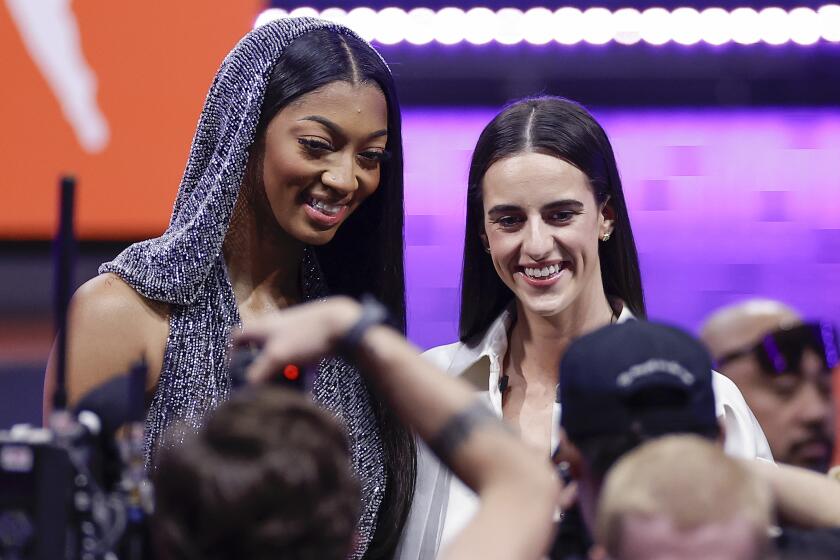NBA rookies aren’t making a splash
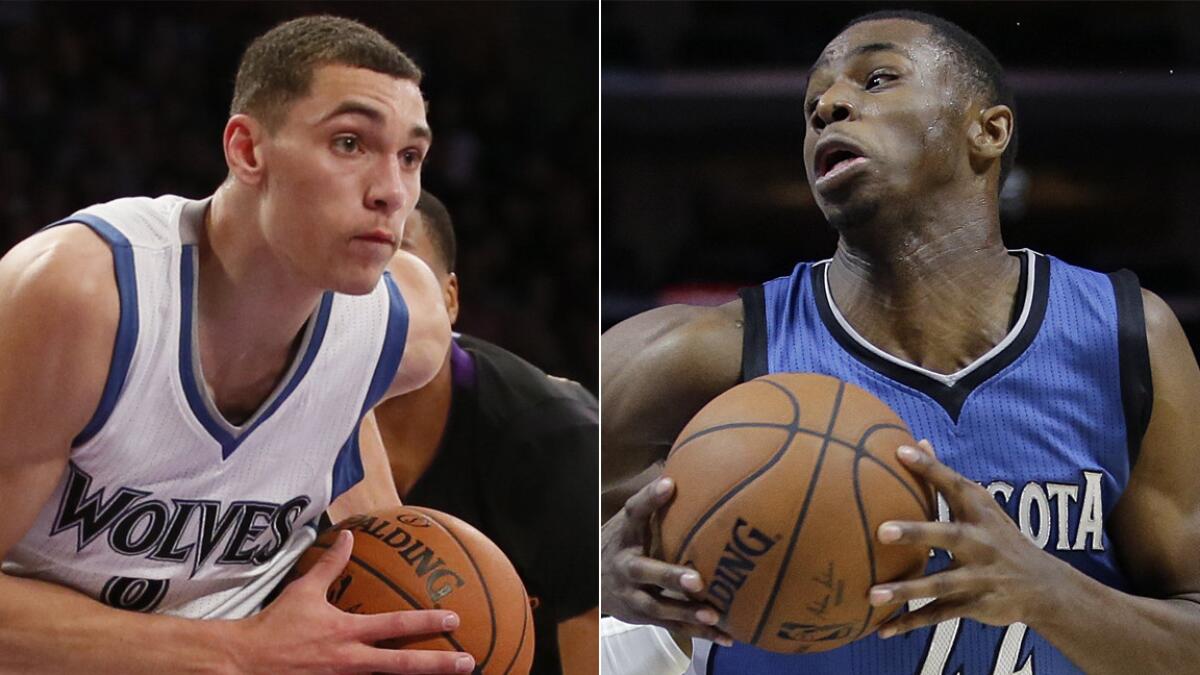
Flip Saunders coached a 19-year-old rookie forward named Kevin Garnett with the Minnesota Timberwolves in 1995-96, and that experience helped him devise a plan for the two teenagers on his current team.
In June, Minnesota drafted 19-year-old Kansas forward Andrew Wiggins with the No. 1 overall pick, and then took UCLA guard Zach LaVine, 19, with the 13th pick.
Saunders gave Garnett, who started 43 games as a rookie, as much responsibility as he could handle to run the offense. But when that was too much for Garnett, Saunders reduced his role.
“That’s kind of how we’re going about doing it, not just with Andrew, but also with Zach,” said Saunders, Minnesota’s coach and president of basketball operations.
Saunders chuckled while talking about giving LaVine more responsibility after he scored a career-high 28 points against the Lakers. Two nights later he went scoreless against Portland.
“So we pulled some of that responsibility back,” Saunders said. “You try to talk to them and you try to explain that there are going to be ups and downs in a season. With Wigs, we’ve tried to get him to become more of a two-way player and not a player just based on the facts of scoring points.”
Wiggins and Milwaukee forward Jabari Parker (No. 2 overall pick) are the headliners for the 2014 rookie class, one that has yet to live up to its hype. But their inconsistent play isn’t surprising given that many of these rookies played only one season in college and are now playing against grown men.
“We’re in just such of a need for the next LeBron James, and Wiggins is not LeBron,” said retired Grant Hill, co-rookie of the year in 1995 with Jason Kidd. “LeBron was averaging [20.9] a game as a rookie. He was the best player on that [Cleveland] team.”
Wiggins was labeled the Next Big Thing after one year in college. He is skilled, athletic and has shown he is willing to play defense.
But he’s slight at 6-8, 199 pounds and “still is growing into his body,” one Western Conference scout said. It’s one reason why Wiggins has struggled on offense, shooting just 39.6% from the field, while averaging 11.7 points in his first 18 games with Minnesota.
Wiggins demonstrated just how inconsistent he is in a game against the Clippers. He scored 14 points in the first half, none in the second.
“I’m not going to be great in one day,” Wiggins said. “It’s a process.”
Meanwhile, Parker, 19, who is 6-8 and 235 pounds, was considered the most NBA-ready pick because of his versatile skills as a rebounder, scorer, defender and team-first player. Parker led all rookies in scoring (12.2 points) through his first 20 games, one of only three rookies to average double digits.
The other top rookies haven’t stood out.
Philadelphia used its third overall pick to take center Joel Embiid, 20, but he’s expected to miss the season with a fractured foot. Orlando (No. 4) picked forward Aaron Gordon, 19, but he’s out with a left foot injury.
Utah picked guard Dante Exum, 19, fifth overall, but he has struggled to get playing time. “I’m trying to be patient,” Exum said. “It’s a huge adjustment, but I keep reminding myself to keep trying to learn and adjust each game.”
Boston (No. 6) took guard Marcus Smart, 20, but he’s just coming back from a left ankle sprain. The Lakers selected forward Julius Randle, 20, seventh overall, but he’s out for the season with a broken right leg.
“People had built this rookie class to be better than the ’03 class,” said Chauncey Billups, who retired last summer after 17 seasons in the league.”That’s just not fair to those guys.”
James’ 2003 rookie class also included Carmelo Anthony, Chris Bosh and Dwyane Wade.
Billups knows that it can take years to establish yourself in the NBA. He was the third pick in the 1997 draft and played on four teams in his first four seasons. He didn’t make the All-Star team until his ninth season.
“I think Andrew and Parker, those guys are going to be tremendously good players. But right now, they’re not the guys they will be,” Billups said.
Some rookies have flourished in the recent past.
Kevin Durant averaged 20.3 points as a rookie with Seattle (before the team moved to Oklahoma City), Chicago’s Derrick Rose averaged 16.8 points, Blake Griffin averaged 22.5 points and 12.1 rebounds with the Clippers and Portland’s Damian Lillard averaged 19 points his first season.
“It’s hard drafting because the college game doesn’t parallel the NBA game as much as people might think,” Golden State General Manager Bob Myers said. “So you have to sometimes take educated guesses as to how a player’s skill set will translate from college to the NBA.”
Extra time in college can help ease the transition, but that’s the exception these days.
“My senior year at Duke … helped me prepare for what I was about to encounter in the NBA,” Hill said. “My senior year, it was my team and I was not only the best player, I was the leader. I think that kind of experience helps you when you come to a team as a top draft pick.”
Hill said it will take time before Wiggins, Parker and the rest of the 2014 draft class fully mature as players.
“These guys are still teenagers,” said Hill, a co-host for NBA TV’s “Inside Stuff.” “You don’t really hit your prime in the league until you’re like mid-to-late 20s. It could be almost another 10 years before they hit their prime. I’m trying to sit here and speculate who they are and what they are. It’s too early to tell.”
Twitter: @BA_Turner
More to Read
Go beyond the scoreboard
Get the latest on L.A.'s teams in the daily Sports Report newsletter.
You may occasionally receive promotional content from the Los Angeles Times.
